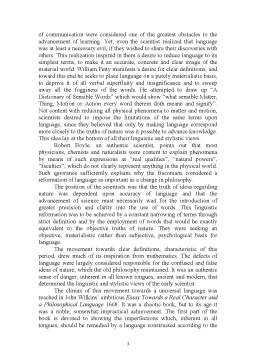Extras din referat
LANGUAGE
Since we cannot speak about a Norman colonization of the island, but only about immigration, it is not surprising that the language of the conquerors did not replace the language of the conquered. That was impossible: the 10,000 Normans represented only 1% of the population. The influence of French (more precisely Norman French) manifested itself in the most permeable compartment of language: vocabulary. Norman French became later on Norman English as a result of mixed marriage.
From the Norman Conquest onward, 3 languages were used in England: Norman French by the court and nobility, Latin by the Church and in official documents and English by the common folk of Anglo-Saxon stock.
The first state document issued in English was the proclamation of Henry III’s assent to the Provisions of Oxford in about 1269.
In 1362 Edward III’s parliament enacted a statute terminating the use of French in the law courts and in the same year the king made the first royal speech to Parliament in English.
By the end of Richard II’s reign (1399) English had become the everyday language of the court, but one presumes the king and his family, noblemen and bishops could all speak French as well.
Traces of Norman French still survive: the Queen’s assent to parliamentary bills is announced in the House of Lords by “La Reine le veult” – “The Queen wills it”.
In the 17th century, the most important origin of the stylistic reformation with which the scientists were so enthusiastically concerned is to be found in the attitude of science toward language.
Of the “Idols” that possess the human mind, Bacon considers the Idols of the Market-place (i.e. language) the most troublesome, maintaining that these alone had “rendered philosophy and the sciences sophistical and inactive”. He justifies his belief on the ground that since words were invented to satisfy inferior intellects, they either stand for things that do not exist at all, or inaccurately represent the truths of nature. This fact was responsible for the violent disputes characteristic of the Middle Ages and Renaissance, which were really concerned with words rather than with realities. Bacon stresses the importance of definitions, but he thinks that, in dealing with material things, definitions may be of little use since they are composed of words and “those words beget others”. In ascending degrees of faultiness, he lists first names of substances, second, names of actions, and third names of qualities. Bacon condemned language because it brought about in the world ideas that had no basis in reality, or confused and distorted the real truths of nature, so that knowledge of them became impossible.
A hidden reason for the distrust of language felt by the early Baconians was in the difference between the ways of acquiring knowledge by the old and new sciences. Books were the storehouse of the former, experiment and observation of nature the means of acquiring the latter. To master the traditional science that prevailed during the Renaissance, a study of Latin and Greek was compulsory, so that philological training was the essential qualification of a scientist of that day, yet, Bacon suggested experiment and observation as a prime characteristic of a scientist. Thus, the opposition between language and observed phenomena became established, and language, always associated with the erroneous science of the past, attracted suspicions.
The antagonism to language presented by the new science was so radical that even those who had devoted their lives to linguistic studies were inclined to depreciate their own profession.
An example of this depreciation of language under the influence of the scientific movement appears in the vigorous attacks on the teaching of the classics in schools. Under the lead of Comenius, Dury and others influenced by the Baconian philosophy, the study of the ancient languages was severely blamed during the period in which Puritanism was triumphant. The spirit of utility, which derived its strength from the new science and which recommended the latter to the Puritans, demanded that language be considered only a means to an end, and thus insisted upon the easiest method of learning it and upon its subordination to the useful study of nature.
The most vigorous condemnation of the study of languages is found in the Academiarum Examen 1653 of John Webster, a Puritan and an enthusiastic Baconian, who expressly advocated the substitution of the new science for the classical studies in universities. Since man’s knowledge is in no way increased by the mere knowing of languages, he believed that little time should be spent upon them.
Preview document
Conținut arhivă zip
- Medieval England .doc























